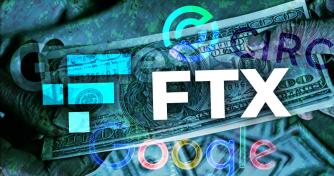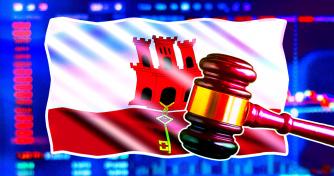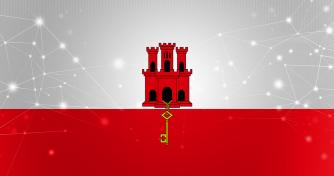 Currency.com CEO on the pros and cons of regulated exchanges, crypto predictions for 2021 and more
Currency.com CEO on the pros and cons of regulated exchanges, crypto predictions for 2021 and more Currency.com CEO on the pros and cons of regulated exchanges, crypto predictions for 2021 and more

Cover art/illustration via CryptoSlate. Image includes combined content which may include AI-generated content.
CryptoSlate recently had the opportunity to chat with Jonathan Squires, the CEO of Currency.com, a top platform for digital asset trading with a broad spectrum of fiat and crypto on-ramps. Squires was previously CEO of iBus Media, part of the Stars Group. With his traditional MBA background, he is one of the new bunch of leaders in crypto who are driving the expansion in decentralized finance and tokenized asset markets.
In the interview, we discuss:
- Jonathan’s professional background and how he got into crypto
- Why he started Currency.com
- Why the team is headquartered in Gibraltar
- Currency.com’s notable milestones
- Benefits of using Currency.com over other platforms
- The Currency.com product roadmap
- Pros and cons of regulated exchanges
- Challenges of building a trading platform
- Other blockchain developments Jonathan is excited about
- Crypto predictions for 2021 and beyond
- Biggest obstacles for crypto mainstream adoption
- Jonathan’s most controversial opinion relating to blockchain
Interview with Jonathan Squires, Currency.com CEO
What is your professional background and how/when did you get into crypto?
Like most other people, I got into cryptocurrency gradually. However, in each of my last few companies, we were already seeing the value of creating cross-platform assets, and blockchain was getting quite a bit of attention as an immutable ledger technology.
When I got involved with Currency.com, I quickly started getting much more hands-on in terms of crypto derivatives and tokenized assets. Even though I knew that these were going to be very relevant parts of our financial economy, it’s really amazed me how relevant and how popular they are with certain kinds of investors, and how much we’re quickly integrating cryptocurrency into our lives.
Tell us about why you decided to start Currency.com?
There was a need for another healthy platform for wide ranges of crypto-related trades. One of the reasons we have so many asset pairs and so much support is that we understood what would be needed not just now, but in the near future, and for that reason we have tokenised thousands of financial markets. So far the results have been exciting to witness.
Where is your team located and why did you choose that jurisdiction?
We have several locations, but we’re headquartered in Gibraltar for a couple of reasons. First of all, the government has worked proactively to regulate cryptocurrency in ways that are helpful. That’s obviously not true across the globe, and in many countries you have a kind of wishy-washy policy discussion that doesn’t benefit private enterprise. We want to know what’s required and why, and then we work within that framework. Also, there’s the sort of iconic view of being in the centre of the world in Gibraltar and also in kind of a neutral place. If we were headquartered in America, we simply wouldn’t get the multinational reach, because the North American market can be isolated from other markets in many ways.
What are some of Currency.com’s notable achievements or milestones?
Of course, the use of smart contracts to deliver a seamless trading experience. You can deposit crypto and buy ERC20 tokens which perfectly reflect any one of thousands of mainstream financial markets from around the world. It’s unique and it’s inspiring to work on.
I also think our early licensing and regulatory approval are central. Other milestones include opening up our various on-ramps from fiat to crypto in a friendly KYC environment and building possibly the most easy-to-use app in the sector.
What are the benefits of using Currency.com as opposed to other trading platforms?
That’s kind of an obvious one right now, as we see Arthur Hayes and others actually getting into trouble. It’s damaging for the entire sector if you see exchanges chasing quick profits whilst undermining any vision for fully regulated and licensed cryptocurrencies.
That’s really the core fundamental reason for most serious traders to migrate to Currency.com. We are a safe environment. When I refer to clear and transparent regulation, that’s the goal. We keep clean, we support our clients and we work hard to get cutting-edge products offered safely and effectively.
What can you tell us about the Currency.com’s product roadmap? What upcoming features are you most excited about rolling out?
Well, some of the most important projects we’re working on are still under wraps, but in general, I think we’ll see some exciting future improvements that will have to do with ways in which national markets open up over the next year. We’ve recently added tokenized stocks from the Russian and Japanese markets, and we’re pushing ahead with plans for corporate bonds on-chain with some major local companies.
There’s a huge wishlist to go through.
Is Currency.com fully regulated? What are the pros and cons of a fully regulated exchange?
Currency.com is fully regulated and compliant with the laws and standards in all the countries we operate in. If the local regulator doesn’t offer clear guidance, we are hesitant to enter. We’re growing so fast that it doesn’t make sense to get burned.
The downside of being regulated is that some big traders want to remain anonymous and this is reflected in many of the trading tools. CCXT bots are often designed for easy plug-and-play with exchanges which don’t need KYC accounts.
What are the biggest challenges of building a trading platform for stocks and crypto?
Not to sound like a broken record, but regulatory compliance is one of the biggest challenges. Otherwise, we’ve only had “good” problems, such as managing huge growth, translating the site and optimising its UX for new countries, or adding instruments and markets which are in high demand by clients. It’s fast-paced and extremely fun.
What other projects and/or blockchain developments are you most excited about?
There’s some general excitement about DeFi, new business models around oracles for smart contracts are always worth looking at, as this is where the day-to-day disruption happens.
Mainstream adoption of crypto by PayPal and leading traditional banks and funds have been exciting to witness.
Do you have any blockchain and/or crypto predictions for 2021 and beyond?
I’ll go for three predictions: Bitcoin at $30,000; adoption of smart contracts by one or two major infrastructure projects funded by Western governments; and the first national stock exchange launched on blockchain.
What are the biggest obstacles for mainstream adoption of crypto?
At present, I would say that it’s only a risk appetite. When you’re looking at a major investment in any company infrastructure or product, you always feel the need to revert to what you know. If you’re a well-paid CTO in your fifties, are you going to rely on your experience or take a chance? We need trailblazers who disrupt their sectors.
What is your most controversial opinion relating to blockchain and/or cryptocurrency?
I think that the concentration of the market cap of Bitcoin amongst a few ultra-rich hodlers might prove a sticking point as fund managers consider whether to invest.
I would like to think that there will be a significant move of wealth from the tech, payment and retail giants to new, unlaunched businesses in the next few years. Unlike the past changes, it’s not that they fail to adapt to new markets but it’s likely that they’ll simply be blindsided. I just hope that the new companies don’t sell out.
Connect with Jonathan Squires
Jonathan Squires heads Currency.com, a top platform for digital asset trading with a broad spectrum of fiat and crypto on-ramps.













































































































